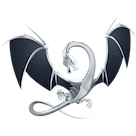N4352-53: Parallelism TS Working Draft and Editor's Report - Jared Hoberock
New WG21 papers are available. If you are not a committee member, please use the comments section below or the std-proposals forum for public discussion.
Document number: N4352-53
Date: 2015-01-08
Working Draft, Technical Specification for C++ Extensions for Parallelism
Parallelism TS Editor's Report
by Jared Hoberock

.png)

 Martin Moene reports that
Martin Moene reports that